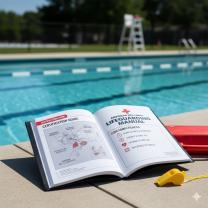How to get CE credits?
Obtaining Continuing Education (CE) credits involves participating in educational activities or programs that meet the criteria set by a relevant professional licensing or certification authority. The process may vary depending on the industry or profession, but here is a general guide on how to obtain CE credits:
Identify CE Requirements:
- Determine the specific CE requirements for your profession or industry. Different licensing boards and certifying organizations may have varying criteria, including the number of required CE credits, approved providers, and types of activities that qualify.
Choose Accredited Providers:
- Look for providers or organizations that are accredited or approved by the relevant licensing or certification authority. Accredited providers typically offer courses and activities that meet the required standards for continuing education.
Select Relevant Courses or Activities:
- Choose courses or activities that are relevant to your profession and align with the specified CE requirements. This may include workshops, seminars, webinars, conferences, online courses, or other educational formats.
Check Approval Status:
- Verify whether the chosen courses or activities are approved by your licensing or certification board. Approved providers often display information about their accreditation on their websites or course materials.
Participate in Educational Activities:
- Attend or complete the selected educational activities. This may involve attending live events, participating in online courses, reading relevant publications, or engaging in other approved learning experiences.
Keep Records of Participation:
- Maintain detailed records of your participation in CE activities. This may include certificates of completion, attendance records, or other documentation provided by the course or activity provider.
Submit Documentation to Licensing Board:
- Submit the required documentation of your completed CE activities to the relevant licensing or certification board. This is typically done through an online portal or by following the specific submission process outlined by the board.
Track CE Credit Hours:
- Keep track of the number of CE credit hours you have earned. Some licensing boards may have specific requirements for the distribution of credit hours across different categories, so be aware of any such specifications.
Renew Your License or Certification:
- Renew your professional license or certification according to the renewal schedule set by your licensing board. Submit any additional documentation or fees required for the renewal process.
Explore Alternative CE Options:
- In addition to traditional courses, consider alternative CE options such as workshops, conferences, webinars, or self-directed study. Some professions also accept activities like presenting at conferences or publishing articles for CE credits.
Stay Informed About Changes:
- Stay informed about any changes to CE requirements or procedures. Licensing boards may update their policies, so it's essential to be aware of any modifications that may impact your CE obligations.
It's crucial to note that the process of obtaining CE credits can vary widely based on the profession and the requirements set by the relevant licensing or certification authority. Always refer to the specific guidelines provided by your professional board and seek clarification if needed. Additionally, staying proactive and planning ahead will help ensure that you fulfill your CE requirements in a timely manner.
How can one obtain Continuing Education (CE) credits in a specific field or profession?
There are several ways to obtain Continuing Education (CE) credits in a specific field or profession. Here are some options to consider:
Formal Courses and Programs:
- Professional associations: Many professional associations offer CE courses and programs specifically designed for their members. These courses can be online, in-person, or hybrid, and they typically cover relevant topics and meet the specific CE requirements for your profession.
- Universities and colleges: Many universities and colleges offer continuing education programs and certificate courses in various fields. These programs can be a good option if you want to gain deeper knowledge in a specific area or earn a certificate to enhance your resume.
- Online learning platforms: Numerous online learning platforms offer CE courses in various fields. These platforms are convenient and flexible, allowing you to learn at your own pace and on your own schedule. Popular platforms include Coursera, edX, Udemy, and LinkedIn Learning.
- Industry conferences and workshops: Attending industry conferences and workshops is a great way to network with other professionals and learn about the latest trends and developments in your field. Many conferences and workshops offer CE credits for attendance and participation.
Independent Learning Activities:
- Reading professional journals and articles: Staying up-to-date with the latest research and developments in your field can be a valuable way to earn CE credits. Many professional journals and publications offer CE quizzes or tests that provide credits for reading their content.
- Attending webinars and podcasts: Listening to webinars and podcasts on relevant topics can be a convenient way to earn CE credits while on the go. Many professional associations and organizations offer free or paid webinars and podcasts with CE credit availability.
- Participating in professional development activities: Volunteering for professional organizations, presenting at conferences, or mentoring other professionals can also be considered CE activities depending on your profession and accrediting body.
Finding CE Opportunities:
- Check your professional association's website: Most professional associations maintain a list of approved CE providers and courses on their websites.
- Search online databases: Several online databases list CE opportunities in various fields. Some popular databases include the National Continuing Education Registry (NCER) and the Continuing Education Online Provider Locator (CEOPL).
- Talk to colleagues and mentors: Your colleagues and mentors can be a valuable resource for finding CE opportunities in your field. They may be able to recommend specific courses or programs that they have found helpful.
Remember:
- The specific requirements for obtaining CE credits can vary depending on your profession and accrediting body. Be sure to check with your licensing board or professional association to determine the specific requirements for your field.
- Some states have mandatory CE requirements for license renewal. Be sure to stay up-to-date on your state's requirements to avoid any penalties.
- Keep track of your CE credits in a logbook or portfolio. This will help you document your efforts and ensure that you meet all of the requirements for license renewal or professional certification.
I hope this information helps you find the best way to obtain CE credits in your specific field!













